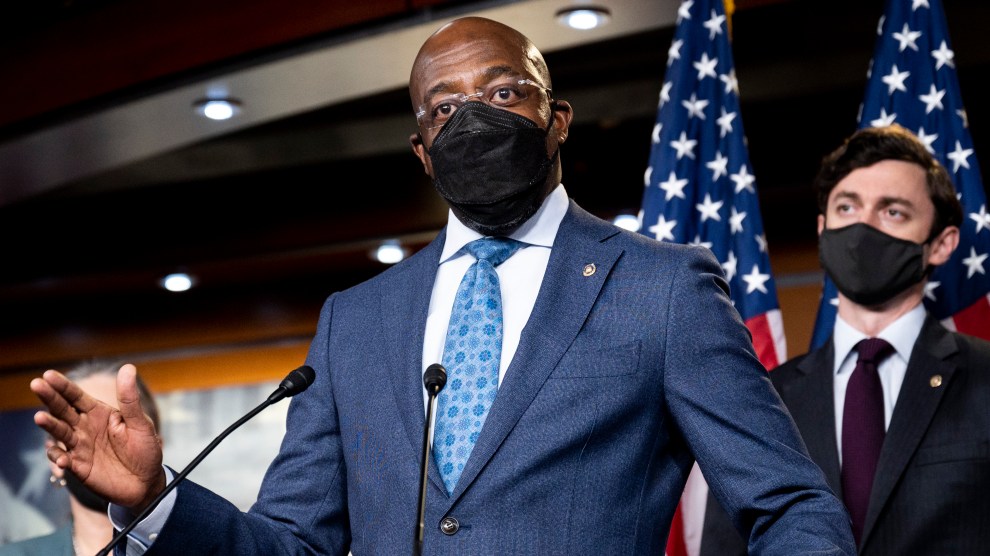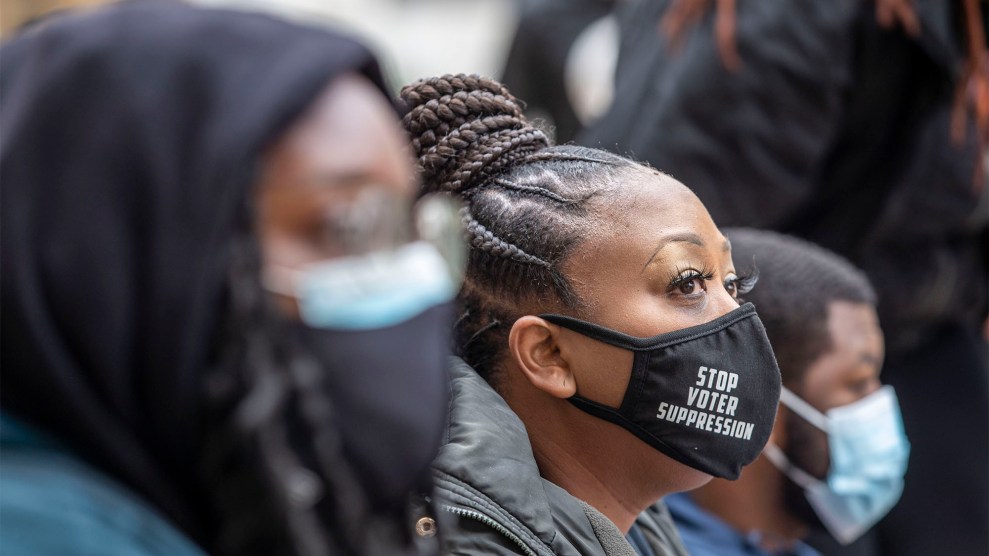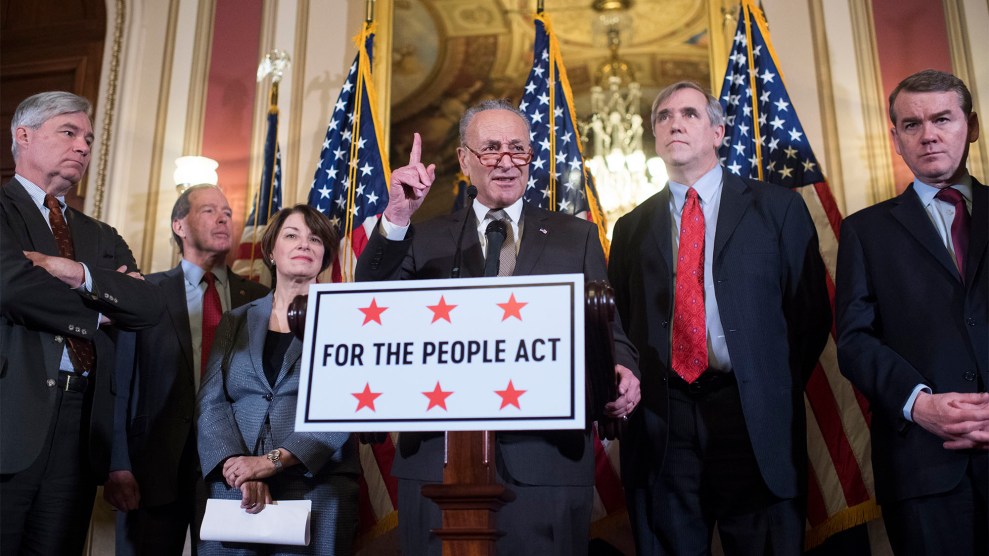
Michael Brochstein/Zuma
“This is Jim Crow in new clothes,” Sen. Raphael Warnock (D-Ga.) said during a speech on the Senate floor Wednesday, referring to Georgia’s recent wave of restrictive voting bills. After condemning the shooting deaths of eight people, including six Asian women, in metropolitan Atlanta last night, Warnock delivered a rousing speech calling on Congress to enact democratic reforms.
American democracy is facing two countervailing movements: a wave of state Republican bills drafted aiming to limit access to the polls, and legislation in Congress that would institute sweeping reforms and quash state-level efforts to roll back voting rights. As my colleague Ari Berman reported last week, Georgia, which elected two Democratic senators in 2020, has become a battleground in the fight over voting rights.
Georgia state senators have approved a bill repealing no-excuse absentee voting, and Georgia’s House, as Berman wrote, passed a bill that eliminates weekend voting days, most notably Sundays, when Black churches hold “Souls to the Polls” voting drives, restricts the use of ballot drop boxes, prevents counties from accepting nonprofit grants to improve their elections, adds new voter ID requirements for voting by mail, gives local election officials less time to send out mail-in ballots and voters less time to return them, “and even makes it a crime to distribute food and water to voters waiting in line.”
“Just a few months after Congressman Lewis’ death,” Warnock said Wednesday, “there are those in the Georgia legislature, some who even dare to praise his name, that are now trying to get rid of Souls to the Polls, making it a crime for people who pray together to get on a bus together in order to vote together.”
Proponents of the restrictive laws also “want to make it a crime to bring Grandma some water while she’s waiting in a line that they’re making longer,” Warnock said. And having to stand in line for hours before casting a ballot, he said, constitutes a kind of poll tax.
Warnock called on the Senate to look beyond the filibuster to find ways to pass the For the People Act, the major voting rights bill that passed in the House earlier this month and would enact common sense reforms such as establishing nationwide automatic and Election Day voter registration, expanding early voting, and enacting new limits to curb what has become—thanks to a series of federal court rulings, including Citizens United—a campaign finance free-for-all. “This issue, access to voting, and preempting politicians’ efforts to restrict voting, is so fundamental to our democracy that it is too important to be held hostage by a Senate rule,” he said, “especially one historically used to restrict expansion of voting rights.”
"I'm here to say that this issue is bigger than the filibuster," said @SenatorWarnock. "This issue, access to voting, and preempting politicians’ efforts to restrict voting is so fundamental to our democracy that it is too important to be held hostage by a Senate rule."
Wow. pic.twitter.com/pJa8AF9F8L
— Mother Jones (@MotherJones) March 17, 2021
“I say let’s get this done, no matter what,” he said. Referring also to the John Lewis Voting Rights Advancement Act, he concluded, “I urge my colleagues to pass these two bills, strengthen and lengthen the cords of our democracy, secure our credibility as the premier voice for freedom-loving people and democratic movements all over the world, and win the future for all of our children.”
Watch the full speech below:
As efforts to rollback critical voting rights and protections are growing in Georgia—and nationwide—I’m speaking on the actions we can take in Congress to protect the foundation of our democracy & ensure every single voice is heard. #TheVoteIsSacred https://t.co/qzTnJxuyIW
— Senator Reverend Raphael Warnock (@SenatorWarnock) March 17, 2021
















